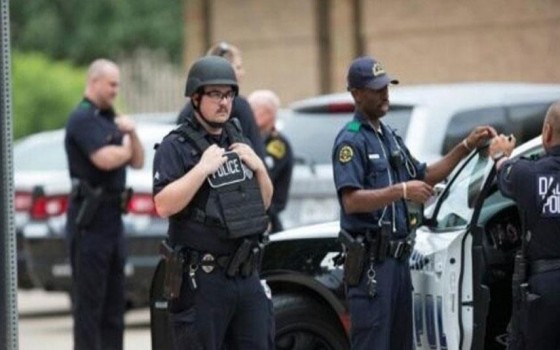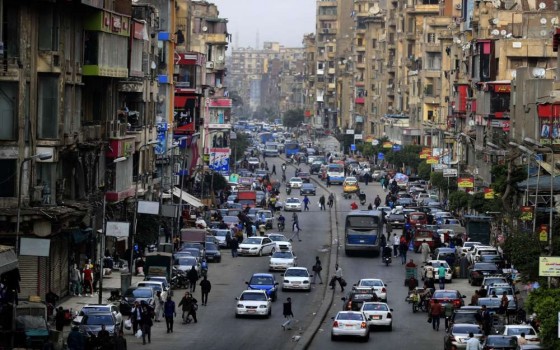
"Some of them as young as eight were raped," a UN official describes the suffering in Sudan between displacement and famine

- Europe and Arabs
- Wednesday , 14 August 2024 9:23 AM GMT
Khartoum - Geneva: Europe and the Arabs
The spokesman for the United Nations Children's Fund (UNICEF), James Elder, said that the humanitarian crisis facing children in Sudan is the largest in terms of numbers, describing it as a "crisis of neglect." He added that by turning a blind eye to Sudan and ignoring the enormous suffering there, the warring parties and the international community continue a dangerous precedent of global indifference to children. This came in the daily news bulletin of the United Nations
Elder was speaking via video from Sudan, at the press conference of the United Nations agencies in Geneva, where he said: "Yesterday I spoke with a senior medical worker who informed me of the extent of sexual violence during this war. She explained that she had been in direct contact with hundreds of women and girls, some as young as eight, who were raped. Many of them were detained for weeks on end. She also spoke about the sad number of children born after rape who are being abandoned." The UN official provided another image of a local boys’ football team playing in a UNICEF child-friendly space in Khartoum state when a shell hit the football pitch, killing two of them and injuring almost the entire team.
“I met these children, both in the hospital and in a UNICEF child-friendly space. They are in a state of shock,” Elder said.
The biggest fear
The UNICEF spokesperson reported that five million children have been forced to flee their homes at a staggering rate of 10,000 displaced girls and boys every day, making Sudan the largest displacement crisis for children in the world, and many have had to do so multiple times.
He pointed to the declaration of a famine in Zamzam camp in North Darfur state, stressing that “without action, tens of thousands of Sudanese children could die in the coming months.” “Diseases are our biggest fear,” Elder said. “If measles, diarrhea or respiratory infections break out – and given that under current living conditions, with heavy rains and floods, these diseases are spreading like wildfire – the dire outlook for children in Sudan will be dramatically worsened.”
He pointed out that children in Sudan and their families urgently need safe and unhindered humanitarian access using all routes, across conflict lines, respect for international humanitarian and human rights law, a massive increase in donor funding, and an immediate ceasefire.
Brutal conflict
The IOM Sudan Chief of Mission, Mohamed Refaat, also spoke at the conference, saying that the conflict in Sudan is “horrifically brutal,” marked by ethnic targeting of civilians and horrific massacres.
He noted that “the Sudanese people are facing one crisis after another, with no end in sight. Every day – and it seems almost every hour – the situation in Sudan is getting worse.”
He pointed out that in Sudan, there are no winners in this war, and that every day, the Sudanese people bear the brunt of this conflict, as “families are uprooted; entire communities are shattered. Floodwaters have turned homes into rubble, and violence has turned neighborhoods into graveyards.”
Rifaat reported that one in five people has become internally displaced, and more than half of these are children.
Displaced people arrive at a site for displaced people in Kassala, Sudan. © UNHCR/Ayem Alfadil Displaced people arrive at a site for displaced people in Kassala, Sudan.
Hunger spreads
The UN official also touched on hunger, which has reached catastrophic levels, as almost all displaced people across Sudan, about 97 percent of them, live in areas suffering from severe food insecurity or worse.
He reported that over the next three months, “an estimated 25.6 million people are expected to face severe food insecurity as the conflict spreads and coping mechanisms are exhausted.”
The combination of food insecurity and ongoing displacement is likely to lead to further cross-border movements, he said, adding that 84 per cent of Sudanese refugees in Chad said food insecurity was the main reason for their movement.
He also pointed to the impact of floods and heavy rains that are causing further suffering to communities already vulnerable to ongoing conflict, with more than 73,000 people affected in 11 of Sudan’s 18 states since June.
He noted that restrictions on humanitarian access have severely limited the ability of aid organizations to scale up their work and save lives, especially during the current rainy season.
A People Who Deserve Peace
The IOM Sudan Chief of Mission warned that “without an immediate, large-scale and coordinated global response, we risk tens of thousands of preventable deaths in the coming months.”
He further noted that “in the IOM Sudan family, grief has become a constant companion. Every week, we mourn the loss of a friend or family member, taken away from their loved ones by violence or tragedy.”
He praised the incredible courage of the people of Sudan, “but they need us now more than ever to stand with them.” “Every day we delay, more lives are lost, more dreams are shattered, and more futures are stolen,” Rifaat said. “Together, we must ensure that the people of Sudan do not lose hope, and do not stand alone in their darkest hour. Enough is enough. The people of Sudan deserve peace,” he added.












No Comments Found